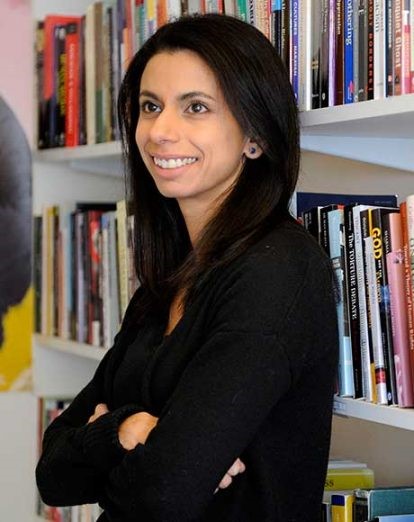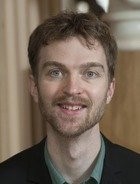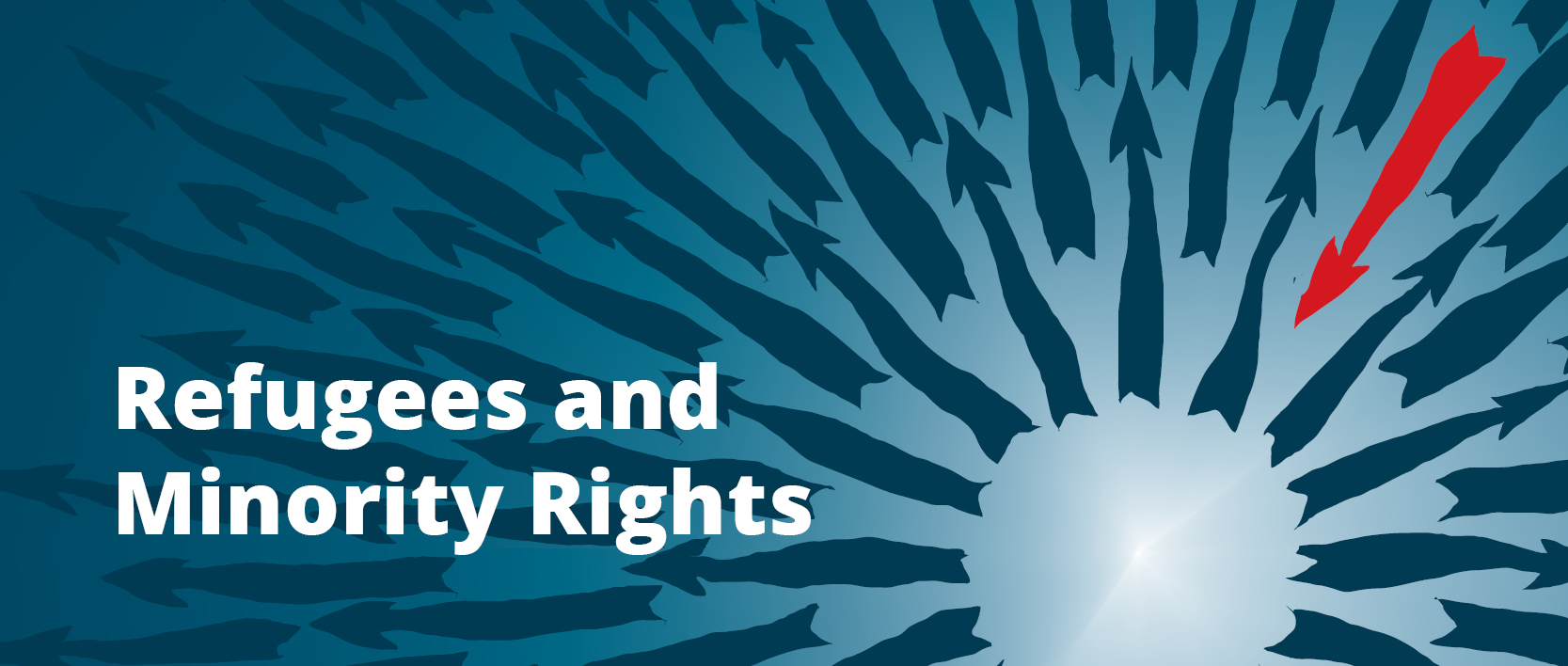Keynote speakers
David Miller
 David Miller is Senior Research Fellow and Professor of Political Theory at Nuffield College, Oxford. He is affiliated to the University’s Department of Politics and International Relations, and to the Faculty of Philosophy. What is perhaps most distinctive about his work is its use of evidence from the social sciences to inform debates in political philosophy. His longest standing interest is in the idea of justice, originally social justice, but now also global justice. He has published three books about this: Social Justice (Clarendon Press, 1976), Principles of Social Justice(Harvard University Press, 1999) and most recently a collection of essays, Justice for Earthlings (Cambridge University Press, 2013). In the last two decades he has combined work on national issues with work on global issues, manifested in his books National Responsibility and Global Justice (Oxford University Press, 2007), and Strangers in Our Midst: the political philosophy of immigration (Harvard University Press, 2016).
David Miller is Senior Research Fellow and Professor of Political Theory at Nuffield College, Oxford. He is affiliated to the University’s Department of Politics and International Relations, and to the Faculty of Philosophy. What is perhaps most distinctive about his work is its use of evidence from the social sciences to inform debates in political philosophy. His longest standing interest is in the idea of justice, originally social justice, but now also global justice. He has published three books about this: Social Justice (Clarendon Press, 1976), Principles of Social Justice(Harvard University Press, 1999) and most recently a collection of essays, Justice for Earthlings (Cambridge University Press, 2013). In the last two decades he has combined work on national issues with work on global issues, manifested in his books National Responsibility and Global Justice (Oxford University Press, 2007), and Strangers in Our Midst: the political philosophy of immigration (Harvard University Press, 2016).For more information, visit https://www.nuffield.ox.ac.uk/people/profiles/david-miller/
Abstract:
Selecting Refugees
My lecture will examine the grounds on which liberal states may select refugees for admission. I will argue first that selection itself is defensible in principle: the responsibility to protect the human rights of refugees is a collective responsibility owed by all the states that are in a position to discharge it, so no state is obliged to accept more than its fair share of refugees. This, however, does not determine how the selection of refugees, for example among those currently housed in camps, should be carried out. May states favour those refugees who they believe will contribute most to the society they are joining, or should they always give preference to the most vulnerable? It is permissible to discriminate between refugees on grounds of their religious or cultural affiliations? And do receiving states have a special obligation to accommodate refugees in cases where the states in question have contributed to bringing about the state of affairs that the refugees are now trying to escape?
Sarah Fine
 Dr Sarah Fine is a senior lecturer in philosophy at King’s College London. Before joining the Department of Philosophy at King’s, Dr Fine was a Research Fellow at Corpus Christi College, Cambridge. Dr Fine’s research lies in the fields of contemporary political philosophy, ethics, and the history of modern political and social philosophy. She specialises in issues relating to migration and citizenship, with interests in a wide range of areas, including democratic theory, nationalism and patriotism, sovereignty, territory, multiculturalism and the politics of recognition, theories of justice, the ethics of political violence, race and ethnicity, and feminism and gender. Dr Fine is the co-editor (with Lea Ypi) of Migration in Political Theory: The Ethics of Movement and Membership (Oxford University Press, 2016), in which she has a chapter on the history and politics of racial and ethnic discrimination in immigration policy.
Dr Sarah Fine is a senior lecturer in philosophy at King’s College London. Before joining the Department of Philosophy at King’s, Dr Fine was a Research Fellow at Corpus Christi College, Cambridge. Dr Fine’s research lies in the fields of contemporary political philosophy, ethics, and the history of modern political and social philosophy. She specialises in issues relating to migration and citizenship, with interests in a wide range of areas, including democratic theory, nationalism and patriotism, sovereignty, territory, multiculturalism and the politics of recognition, theories of justice, the ethics of political violence, race and ethnicity, and feminism and gender. Dr Fine is the co-editor (with Lea Ypi) of Migration in Political Theory: The Ethics of Movement and Membership (Oxford University Press, 2016), in which she has a chapter on the history and politics of racial and ethnic discrimination in immigration policy.For more information, visit https://www.kcl.ac.uk/artshums/depts/philosophy/people/staff/academic/fine.aspx
Abstract:
Refugees and the Limits of Political Philosophy
Everyone has the right to seek and to enjoy in other countries asylum from persecution, but in practice many seek and do not find. Where asylum is in short supply, can we identify principles for prioritizing the asylum claims of some over those of others?
In this paper, I reflect on what kind of question this is, and whether it is one that I am in a suitable position to answer.
For example, there are some questions that have no appropriate answer—perhaps each option is equally bad and all are impermissible—and in which context a political philosopher is redundant. There are some questions which call for the marshalling of various forms of empirical evidence or rely heavily on experience, in areas where a political philosopher has no special expertise. There are some questions which are difficult, contentious, sensitive, and require nuanced responses. Here the political philosopher will add caveats and provisos, but those details may be overlooked or ignored by the relevant audience. There are some questions where the political philosopher’s answer could lend justification to what seem like inexcusable policies, and thus could issue in serious harms. So which kind of question is this? And is it one that I ought to try to answer?
Serena Parekh
 Serena Parekh is an associate professor of philosophy at Northeastern University in Boston, where she is the director of the Politics, Philosophy, and Economics Program and editor of the American Philosophical Association Newsletter on Feminism and Philosophy. Her primary philosophical interests are in social and political philosophy, feminist theory, and continental philosophy. Her most recent book, Refugees and the Ethics of Forced Displacement, was published with Routledge in 2017. Her first book, Hannah Arendt and the Challenge of Modernity: A Phenomenology of Human Rights, was published in 2008 and translated into Chinese. She has also published numerous articles on social and political philosophy in Hypatia, Philosophy and Social Criticism, and Human Rights Quarterly.
Serena Parekh is an associate professor of philosophy at Northeastern University in Boston, where she is the director of the Politics, Philosophy, and Economics Program and editor of the American Philosophical Association Newsletter on Feminism and Philosophy. Her primary philosophical interests are in social and political philosophy, feminist theory, and continental philosophy. Her most recent book, Refugees and the Ethics of Forced Displacement, was published with Routledge in 2017. Her first book, Hannah Arendt and the Challenge of Modernity: A Phenomenology of Human Rights, was published in 2008 and translated into Chinese. She has also published numerous articles on social and political philosophy in Hypatia, Philosophy and Social Criticism, and Human Rights Quarterly.For more information, visit https://www.northeastern.edu/cssh/faculty/serena-parekh
Abstract:
The Refugee Crisis Needs a New Frame: We are Not Rescuers
In this talk, I suggest that the way we talk about the challenges around refugees needs a new frame. According to the old frame, Western states can be seen as rescuing refugees who have fled from bad states, either through resettlement or through granting asylum. On this view, our moral obligations to refugees can be thought of as an ethics of rescue - we have a moral obligation to rescue people when we can do so at relatively low cost to ourselves. I argue that this frame is too myopic in light of the contemporary global reality. In the 21st century, refugees experience two sets of harms. The first harm is well known: their displacement from their countries of origin caused by their malicious or ineffective governments. But the second harm is the result of the “solutions” created by the international community and supported and encouraged by Western states. So rather than being rescuers, we must consider ourselves as part of the problem.
The harm that I’m referring to is the fact that a refugee in the 21st century has basically three choices, all of them problematic, that are the result of states’ collective refusal to find morally acceptable solutions for refugees and to instead focus on sovereign control of borders. The three choices are: indefinite waiting in a resource-poor, insecure refugee camp for the slim chance - less than 1% - of resettlement; self-settlement in urban slums, without the ability to either work legally nor access aid from the UN; agree to be smuggled to Europe, knowing you will very likely be tortured, raped, extorted, and potentially suffocated or drowned along the way. While we in the West debate whether we should resettle 1% or .5% of refugees, refugees themselves are navigating these choices that we have created for them.
If we think of the problem like this, it becomes clear that Western states are not merely rescuers but, in fact, part of the problem. With this frame in place, it becomes clear that thinking about our moral obligations to refugees requires a much larger lens than the one that usually restricts our focus to whether or not we are obliged to grant asylum or ought to resettle refugees. The moral question becomes: can we reform the refugee protection regime so that we are able to genuinely protect and offer autonomy and dignity to all refugees? Can we help people who are enduring our “solutions” i.e., refugee camps, urban slums, dangerous migrations? This paper asks us to go beyond the theme of the conference and the ethics of ‘refugee triage’ and look at the broader context and the ways in which our policies shape the possibilities open to refugees.
Kieran Oberman
 Dr Kieran Oberman is a lecturer in politics at the University of Edinburgh. He joined Edinburgh University in September 2013. Before coming to Edinburgh, he was a Teaching Fellow in Political Theory at University College Dublin. He obtained his DPhil in Politics from Oxford University and have since held positions at the University of Louvain, Stanford University and the Asian University for Women. At Edinburgh, he plays an active role in both the Just World Institute and the Political Theory Research Group. Dr Oberman writes articles for public forum websites such as OpenDemocracy and the Just World Institute. These articles seek to apply ideas from political philosophy to contemporary public affairs.
Dr Kieran Oberman is a lecturer in politics at the University of Edinburgh. He joined Edinburgh University in September 2013. Before coming to Edinburgh, he was a Teaching Fellow in Political Theory at University College Dublin. He obtained his DPhil in Politics from Oxford University and have since held positions at the University of Louvain, Stanford University and the Asian University for Women. At Edinburgh, he plays an active role in both the Just World Institute and the Political Theory Research Group. Dr Oberman writes articles for public forum websites such as OpenDemocracy and the Just World Institute. These articles seek to apply ideas from political philosophy to contemporary public affairs.For more information, visit http://www.sps.ed.ac.uk/staff/politics/kieran_oberman
Abstract:
Refugee Discrimination – The Good, the Bad and the Politically Expedient
How frequently do states discriminate among refugees? When is such discrimination wrong? Would it ever be permissible for a political leader to impose wrongful discrimination in the face of political constraints? This article seeks to answer each question in turn. In answer to the first, it finds that discrimination is rampant. There is the kind of discrimination that gets noticed: discrimination within the current refugee system in favour of those who inspire more sympathy or have more to offer a receiving state. But there is also that kind of discrimination that is missed: discrimination built into the refugee system itself. The second question proves tricky. Matters are clear at the extremes. Discrimination based on need is permissible. Discrimination based on racism is not. In between, we have cases in which we may suspect that discrimination is wrong but we are not precisely sure why it is wrong or how wrong it is. The article searches for relevant criteria by which to judge. Finally, in turning to the last question, the article comes to the surprising conclusion that whether it is permissible for a political leader to impose wrongful discrimination in the face of political constraints depends a great deal on our philosophical understanding of the state and the relationship between the state and its political leadership. If we understand the state and political leadership in one way, wrongful discrimination can be justifiably imposed. Understood another way, however, the idea of justifiably imposing wrongful discrimination proves a contradiction in terms.
Lea Ypi

Lea Ypi is Professor in Political Theory in the Government Department, London School of Economics, and Adjunct Associate Professor in Philosophy at the Research School of Social Sciences, Australian National University. Before joining the LSE, she was a Post-doctoral Prize Research Fellow at Nuffield College (Oxford) and a doctoral researcher at the European University Institute. She studied Philosophy and then Literature at the University of Rome, La Sapienza and has held visiting positions at Sciences Po, Goethe University Frankfurt, the Wissenschaftskolleg zu Berlin, the Australian National University and the Italian Institute for Historical Studies. Ypi is the author of several books published by Oxford University Press and a co-editor (with Sarah Fine) of Migration in Political Theory: The Ethics of Movement and Membership (Oxford University Press, 2016).
For more information, visit http://www.lse.ac.uk/government/people/academic-staff/lea-ypi
Abstract:
Irregular migration, adverse possession and the justification of the right to exclude
Suppose a gang of Mafiosi manages to fence off a part of common land and by sheer recourse to violence and oppression convinces everyone around them that they have acquired legitimate property. What could justify their descendants’ right to exclude given the tainted origins of first acquisition? One answer is to appeal to the doctrine of ‘adverse possession’ in law. The doctrine is often invoked to claim de facto title on holdings arguing that wrongful occupants of land might nevertheless establish a right to it after a sufficient period of time has elapsed, provided that the property has not been contested.
Adverse possession is often invoked to discuss the rights of irregular migrants to naturalise in countries in which they have entered via illegal channels (thus committing an original wrong). Some authors have suggested that the doctrine of adverse possession only works if it combines a claim to continuous enjoyment of access to land with indifference from others whose rights are violated by such wrongful and unilateral taking of property. In this paper I explore the implications of the doctrine of adverse possession for states’ rights to exclude irregular migrants in light of their tainted history of unjust appropriation of the territories they occupy. I suggest that if the doctrine of adverse possession is insufficient to provide irregular migrants with a justification of the right to settle even after some lapse of time, it also does not justify the territorial rights of states whose claims to jurisdiction and the related right to exclude is built on an analogous (and in fact much worse) form of unilateral occupation of territory. I then review the temporal significance of social membership ties and explore potential objections to this argument.
Phillip Cole
 Phillip Cole is Senior Lecturer in Politics and International Relations at The University of the West of England, Bristol. His publications include Philosophies of Exclusion: Liberal Political Theory and Immigration (Edinburgh University Press 2000), The Myth of Evil (Edinburgh University Press 2007), and, with Christopher Heath Wellman, Debating the Ethics of Immigration (Oxford University Press 2011). He is a co-editor (with Tendayi Bloom and Katherine Tonkiss) of Understanding Statelessness (Routledge 2017).
Phillip Cole is Senior Lecturer in Politics and International Relations at The University of the West of England, Bristol. His publications include Philosophies of Exclusion: Liberal Political Theory and Immigration (Edinburgh University Press 2000), The Myth of Evil (Edinburgh University Press 2007), and, with Christopher Heath Wellman, Debating the Ethics of Immigration (Oxford University Press 2011). He is a co-editor (with Tendayi Bloom and Katherine Tonkiss) of Understanding Statelessness (Routledge 2017).His area of expertise include International migration and Human Rights, Global Ethics and International Justice and Asylum and Refugees.
For more information, visit http://people.uwe.ac.uk/Pages/person.aspx?accountname=campus%5Cp2-cole
Abstract:
Climate Change and Global Displacement: Towards an Ethical Response?
Global displacement of peoples is growing in scale in the 21st century. However, the focus of attention has been on those forcibly displaced, currently estimated at around 65 million. What is now being recognised is that people are not just displaced by political violence, but also by other factors, one of which is environmental disaster. The fact is that the numbers of environmentally displaced are much greater than those displaced by violence and political instability. It is estimated that between 2008 and 2012 sudden onset disasters such as earthquakes, cyclones and floods displaced around 144 million people. The UNHCR estimates 26.4 million people are displaced by natural disaster every year since 2008.
The role of climate change here is to some extent controversial, in that some of these events are clearly not related to it, such as earthquakes, and we do not have that scientific precision to precisely attribute others, such as cyclones and floods, to that process. However, climate change is a significant context for thinking about the environmentally displaced. In a Refugee Studies Centre report in 2008, the authors argued that there are two factors which distinguish what is happening and what may happen from the past: first, the global scale of environmental change and its potential impacts such as forced migration – while these may have been episodic or localised in the past they will not be in the future; second, human agency is at the centre of global climate change – and this matters to the political and ethical responses to it.
There are two key discussions to have on this question. The first is the whether the concept of the refugee is applicable here; the second is the question of moral and political responsibility. On the first question, there is considerable disagreement amongst experts on whether there can be environmental or climate change refugees, and in this paper I examine these debates and attempted definitions. On the second question, the discussion has a political dimension as the fact is that state parties to the UNHCR have consistently blocked moves to bring the environmentally displaced under the scope of that agency, or to expand the definition of the refugee in the international Refugee Convention to include them. In the face of that refusal, I examine possible solutions which aim to embody some degree of international responsibility for the environmentally displaced, such as the Nansen Initiative.
Given that global displacement through climate change is going to become one of the key questions in the 21stcentury, both in its scale and its urgency, in this paper I ask whether the responses we have seen so far from the international community go anywhere near meeting what is morally required.
